Climate change. Racial injustice. Economic inequality. Just to name a few. There is no shortage of major challenges facing our society today that grantmaking seeks to address.
In the absence of government intervention, who determines how and whether these issues get addressed? In many cases, philanthropic leaders fill the void. And philanthropy is undoubtedly at a turning point.
Grantmakers and grant-seekers are working together to determine strategic priorities, fund projects, and take action in local communities with an eye towards addressing these massive global dilemmas.
Understanding the individuals behind these initiatives and learning from their approaches to philanthropy is essential in order to address the challenges facing our communities and advocate for change.
Let’s spend some time getting to know the industry-shapers driving grantmaking forward in 2020.
The grantmaking thought leaders
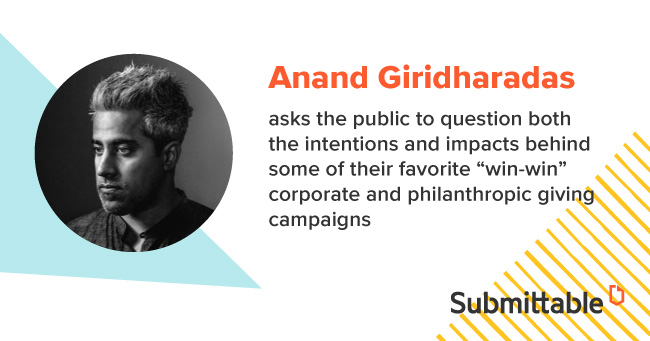
Anand Giridharadas, Author of Winners Take All
Every sector needs a good (constructive) critic.
Philanthropy has one and his name is Anand Giridharadas.
Giridharadas is Time magazine editor-at-large and the author of the groundbreaking critique of philanthropy in his most recent book, Winners Take All. (Full disclosure: This book is currently on my nightstand.)
He asks the public to question both the intentions and impact behind some of their favorite “win-win” corporate and philanthropic giving campaigns. Giridharadas takes aim at market-based solutions that have taken hold of the social sector which he suggests are not entirely effective.
From searing Twitter commentary directed at corporations running CSR campaigns to in-depth investigations (in his book) of popular philanthropic giving efforts, it’s easy to see how and why Giridharadas is causing more than a little well-timed introspection among the philanthropic elite.
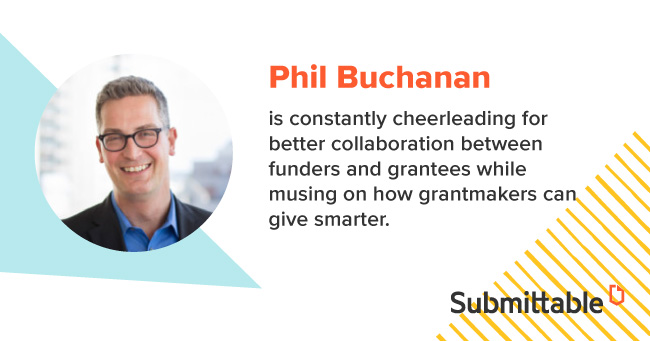
Phil Buchanan, President, Center for Effective Philanthropy
If Anand Giridharadas is one side of the coin, then Phil Buchanan is definitely the other side.
As the president of one of philanthropy’s major gatekeeping institutions, Phil Buchanan is constantly cheerleading for better collaboration between funders and grantees while musing on how grantmakers can give smarter.
He agrees with Giridharadas that the government can certainly do more, but falls back on the idea that we need nonprofits to fill the void in the meantime given our considerable community needs.
Buchanan is the consummate “inside man” working to enhance how grantmaking works from within, demonstrating that it takes many different types of players to move a whole industry forward.
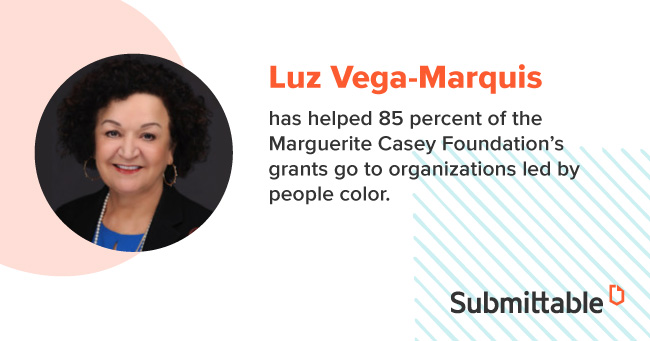
Luz Vega-Marquis, outgoing president and CEO of Marguerite Casey Foundation
Few leaders have done more to demonstrate how philanthropic institutions can better serve families of color and women leaders than Luz Vega-Marquis. She has spearheaded a push within the sector to do more for these communities through multi-year general operating funds.
The impact? The drive towards multi-year financial support demonstrated to nonprofit leaders that funders have trust in their leadership over the long term.
Just look at the results Vega-Marquis has inspired during her tenure:
- Over 85 percent of the Marguerite Casey Foundation’s grants have gone to organizations led by people color
- 60 percent of the foundation’s staff are people of color
- 82 percent of the foundation’s board are people of color
Vega-Marquis has also invested heavily in future leaders. She founded Hispanics in Philanthropy in 1983 to support those traditionally left out of the grantmaking loop.
Even as she passes the torch to a new leader, Vega-Marquis’ imprint on the grantmaking field continues to resonate.
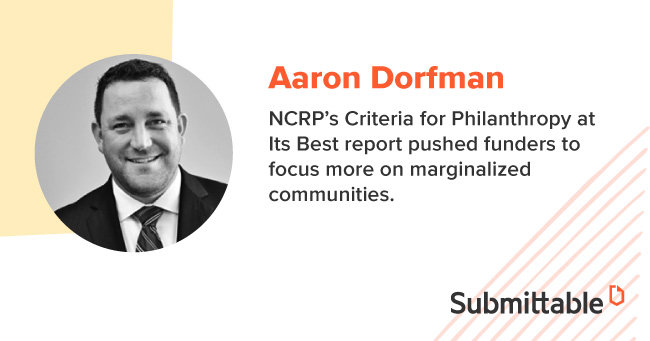
Aaron Dorfman, President & CEO of National Committee for Responsive Philanthropy
Sometimes, reports change the game.
It wasn’t quite Watergate, but NCRP’s Criteria for Philanthropy at Its Best report (published under Dorfman’s leadership) pushed funders to focus more on marginalized communities while directing more support to grassroots efforts. Many in the sector initially rejected the idea that universal principles could be applied to a field as broad and diverse as philanthropy. Now, many of the report’s ideas are conventional wisdom within grant management.
Despite the sunlight that the NCRP report provided for the sector, more recent data demonstrate that little had changed in terms of who gets funded. Dorfman, in his role as a major thought leader in philanthropy, continues to advocate that funders rethink the ways that money and power shape the sector.
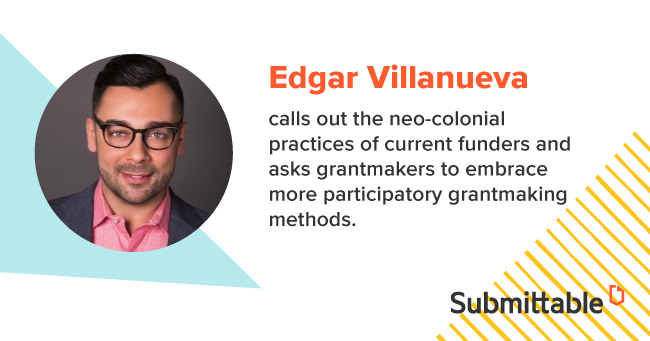
Edgar Villanueva, Senior Vice President of Programs and Advocacy, Schott Foundation
Edgar Villanueva is another public intellectual with a book that is reshaping philanthropy.
Villanueva is an impressive actor within the grantmaking sector, urging funders to alter their practices. And he offers specific and detailed methods for how they can accomplish that goal.
His recent book, Decolonizing Wealth, offers a roadmap for funders to revitalize modern philanthropy by drawing on indigenous practices (Mr. Villanueva is a registered member of the Lumbee Tribe of North Carolina). Beyond just calling out the neo-colonial practices of current funders, Villanueva goes a step further and asks grantmakers to embrace more participatory grantmaking methods.
Villanueva’s perspective is a refreshing take on a sector rife with outdated practices.
The grantmaking executives
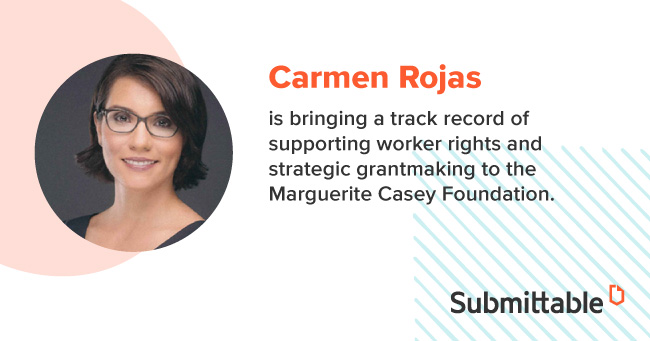
Carmen Rojas, Incoming President and CEO of Marguerite Casey Foundation
Stepping in as the new leader of the Marguerite Casey Foundation, Carmen Rojas brings a wealth of experience ranging from her efforts building worker power across the nation through The Workers’ Lab to her stint at the Kapor Center doing strategic grantmaking.
Rojas looks poised to build on the significant achievements of her predecessor while adding her own unique take on grantmaking gleaned at the helm of the Casey Foundation.
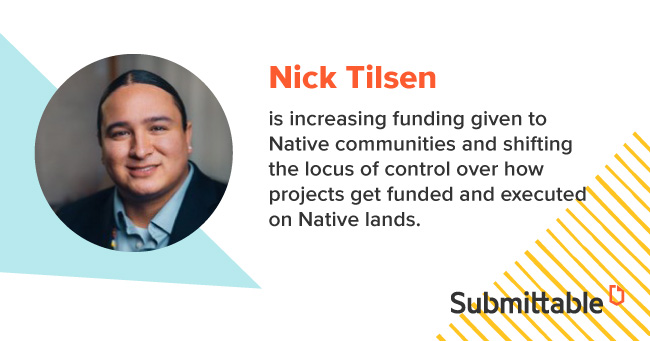
Nick Tilsen, President & CEO, NDN Collective
For far too long, grantmakers have neglected Native communities.
Nick Tilsen is dedicated to changing that.
Through the recently-launched NDN Collective, Tilsen is shifting the balance of power between Native communities and major funders. He and his team have built a clearinghouse of sorts, a multi-entity organization that empowers indigenous people to serve as the architects of their own future.
By increasing overall funding given to Native communities and adjusting the locus of control over how projects get funded and executed on Native lands, Tilsen and his crew are giving more power to Indigenous people and helping major funders improve their work within these communities.
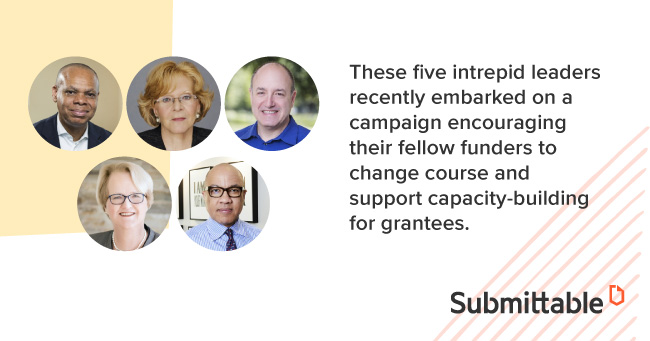
The five CEOs teaming up to help charities pay overhead
If you’re looking for heavyweights working together to change philanthropy, here they are:
- Patrick Gaspard – Open Society Foundations
- Julia Stasch – MacArthur Foundation (immediate past president)
- Larry Kramer – Hewlett Foundation
- Carol Larson – Packard Foundation
- Darren Walker – Ford Foundation
These five CEOs took on an unpopular subject in philanthropy and altered the course of the entire sector. For years, nonprofit overhead was the third rail within philanthropy. Nonprofits need it (desperately) but funders were constantly pushing them to reduce internal expenditures in favor of programmatic expenses.
However, in order to achieve an impact, grantees require resources for rent, good wages, technology, and other organizational needs. So these five intrepid leaders recently embarked on a new campaign to encourage their fellow funders to change course and support capacity building for grantees.
Their new approach is grounded in some startling data about the realities most nonprofits face.
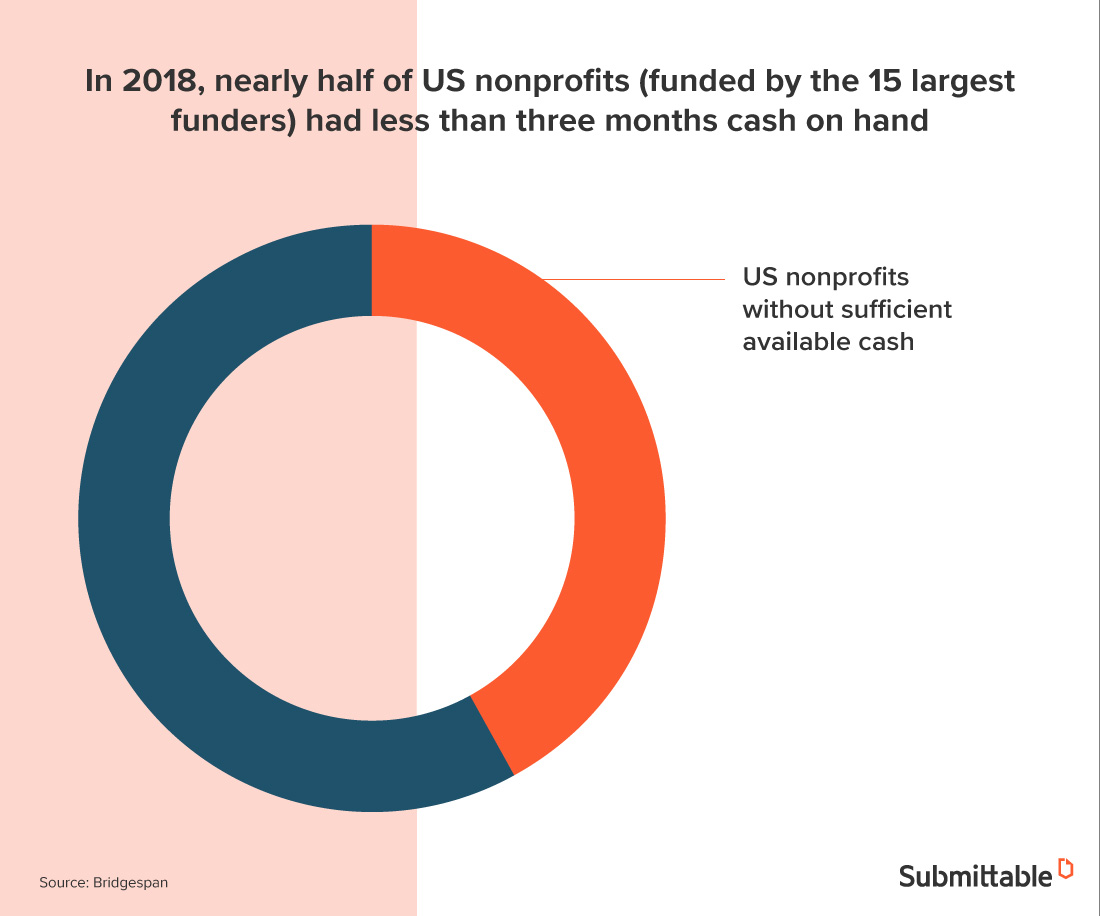
On average, grants from these five funders covered just half of the grantees’ total overhead costs. Bridgespan also found in 2018 that almost half of nonprofits funded by major funders are operating with less than one fiscal quarter’s worth of cash on hand.
No organization can sustain operations with such thin margins, especially those looking to make a big impact in communities. These executives are out to change that reality.
The organizational leaders
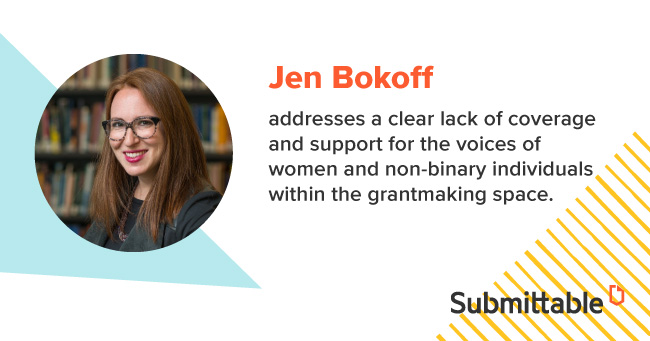
Jen Bokoff, Director of Stakeholder Engagement at Candid
When it comes to calling people in vs. calling people out, Jen Bokoff knows the right balance to strike.
Her 2019 piece in the Chronicle of Philanthropy created waves in grantmaking circles by highlighting simple, why-haven’t-we-done-this-already ways that philanthropic leaders can lift up unheard voices in the sector.
Using a method as simple as asking a question on Twitter to crowdsource a list of answers and then disseminating that list, Bokoff showed grantmaking leaders how easy it can be to address inequities in their field. In this case, Bokoff addressed a clear lack of coverage and support for the voices of women and non-binary individuals within the grantmaking space.
Expect to see more clear and public challenges like this from Bokoff and others questioning the authority of the media that cover philanthropy as well as funders themselves in the near future.
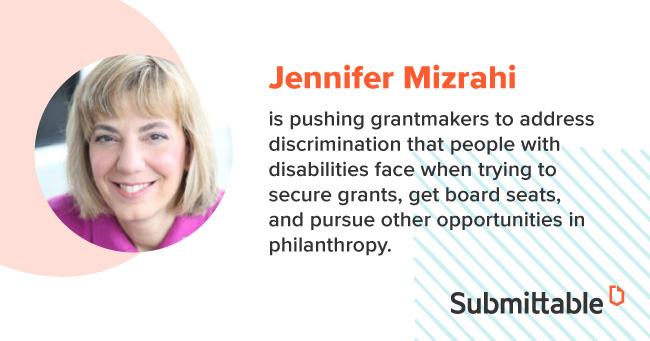
Jennifer Mizrahi, Co-founder of RespectAbility
Who is sticking up for the rights of people with disabilities in philanthropy?
Jennifer Mizrahi, one of the founders of RespectAbility, is leading the charge. Mizrahi is pushing grantmakers to address discrimination that people with disabilities face when trying to secure grants, get board seats, and pursue other opportunities in philanthropy.
Through Mizrahi’s efforts, major organizations like the Ford Foundation have added people with disabilities to their broader equity agendas. Mizrahi isn’t afraid to take her case directly to foundation leaders, insisting that grantmakers recognize people with disabilities as vital partners in philanthropic work.
And she’s succeeding in this effort.
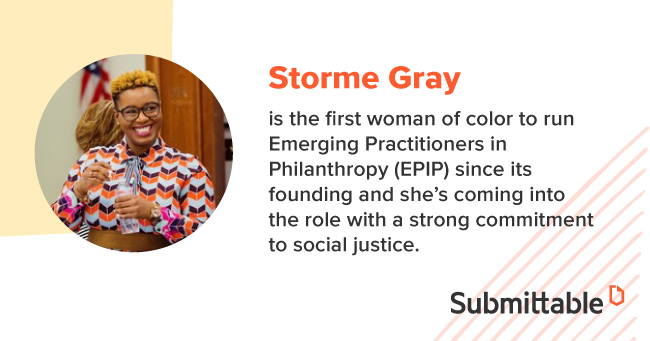
Storme Gray, Executive Director, Emerging Practitioners in Philanthropy (EPIP)
As philanthropy evolves, the next generation becomes even more important.
Enter Storme Gray, the new Executive Director of Emerging Practitioners in Philanthropy (EPIP). She’s the first woman of color to run the organization since its founding and she’s coming into the role with a strong commitment to social justice.
With a background in creating leadership development programs focused on diversity, equity, and inclusion, we can expect Gray and her team to significantly boost opportunities for a broader array of early- and mid-career professionals in philanthropy.
What it takes to manage grantmaking in 2020
As a new class of leaders takes the reins in the grantmaking sector, a focus on developing and supporting new talent has become critical. One thing that all of these great leaders have in common: They’re committed to improving philanthropic practice.
As grantmaking becomes more equitable and participatory, managing the process becomes even more complex. Grantmakers and grant-seekers are looking for ways to streamline grantmaking processes, increase the quality and efficacy of grants, as well as find new ways to measure and communicate impact.
Grant management software can help grantmakers achieve these goals by making it easier to coordinate among stakeholders, manage data, and track results through one centralized system. For grantmakers looking to reshape philanthropy in 2020 like the leaders discussed here, efficiency is essential.

